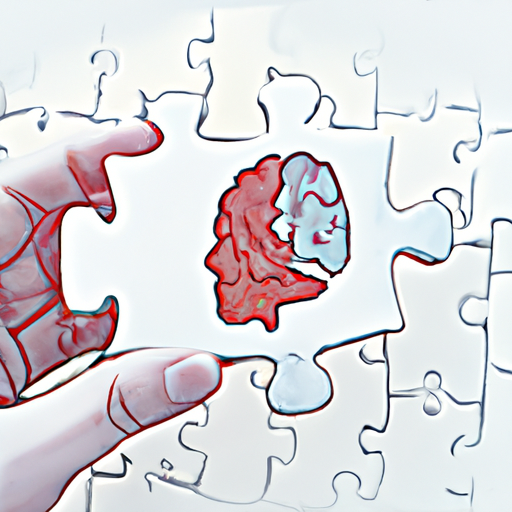Cancer treatment has undoubtedly improved over the years, offering hope for many patients battling this devastating disease. However, as medical advancements continue, it is essential to recognize the potential neurological complications that can arise as a result of these treatments. In this article, we will delve into the various aspects of neurological complications of cancer treatment, including their symptoms, diagnosis, causes, and more. Whether you are a patient, caregiver, or healthcare professional, understanding and managing these complications is crucial to ensure the best possible outcomes for cancer patients. Join us as we explore the complexities of neurological complications and provide a comprehensive guide to recognizing, addressing, and managing them effectively.
1. "Understanding the Neurological Complications of Cancer Treatment: Symptoms, Diagnosis, and Causes"
Neurological complications of cancer treatment can greatly impact the quality of life for cancer patients. These complications can arise from various cancer treatments, including chemotherapy, radiation therapy, targeted therapy, and immunotherapy. It is important for both patients and healthcare professionals to understand the symptoms, diagnosis, and causes of these neurological complications in order to effectively manage and treat them.
Symptoms of neurological complications can vary depending on the specific treatment and the individual patient. Common symptoms may include peripheral neuropathy, which is characterized by numbness, tingling, or pain in the hands and feet. Other symptoms may include cognitive dysfunction, such as difficulty with memory, attention, and problem-solving abilities. In some cases, patients may experience motor dysfunction, such as weakness, difficulty with coordination, or changes in muscle tone. Additionally, patients may develop seizures, headaches, or changes in vision or hearing.
Diagnosing neurological complications of cancer treatment can be challenging, as these symptoms can overlap with other conditions or side effects of cancer treatments. Healthcare professionals may perform a thorough physical examination, review the patient’s medical history, and conduct various tests to rule out other potential causes. These tests may include blood tests, imaging studies (such as magnetic resonance imaging or computed tomography scans), nerve conduction studies, or lumbar puncture to analyze cerebrospinal fluid.
The causes of neurological complications in cancer treatment can be multifactorial. Chemotherapy drugs, for example, can cause damage to nerves and lead to peripheral neuropathy. Radiation therapy, especially to the brain or spinal cord, can result in cognitive dysfunction or motor dysfunction. Some targeted therapies and immunotherapies may also have neurological side effects. Additionally, factors such as age, pre-existing neurological conditions, and overall health status can contribute to the development and severity of these complications.
Treatment options for neurological complications of cancer treatment primarily focus on managing symptoms and improving quality of life. Medications such as pain relievers, antidepressants, anticonvulsants, or neuroprotective agents may be prescribed to alleviate symptoms. Physical therapy
2. "Managing the Neurological Side Effects of Cancer Treatment: Treatment Options and Strategies"
Managing the Neurological Side Effects of Cancer Treatment: Treatment Options and Strategies
When undergoing cancer treatment, patients may encounter various neurological side effects that can significantly impact their quality of life. These complications can arise as a result of the cancer itself or the treatments used to combat it, such as chemotherapy, radiation therapy, immunotherapy, or surgery. Recognizing and managing these neurological side effects is crucial to ensure optimal patient care and improve treatment outcomes.
One of the most common neurological side effects of cancer treatment is chemotherapy-induced peripheral neuropathy (CIPN). CIPN is characterized by damage to the peripheral nerves, leading to symptoms such as numbness, tingling, pain, and muscle weakness in the hands and feet. To manage CIPN, healthcare professionals may employ various treatment options. Medications such as anticonvulsants, antidepressants, and opioids can help alleviate pain and improve nerve function. Physical therapy techniques, including exercise and stretching, can also be beneficial in managing CIPN symptoms.
Radiation therapy, another common cancer treatment, can cause radiation-induced brain injury (RIBI). RIBI can manifest as cognitive impairment, memory problems, difficulty concentrating, and fatigue. Treatment options for RIBI vary depending on the severity and specific symptoms experienced by the patient. Cognitive rehabilitation, involving exercises and strategies to improve cognitive function, can be beneficial. Supportive care measures, such as rest, proper nutrition, and stress reduction techniques, can also help manage RIBI symptoms.
Immunotherapy, a rapidly advancing field in cancer treatment, may lead to immune-related neurological complications. These complications can include inflammation of the brain or spinal cord, known as immune-mediated encephalitis or myelitis. Prompt diagnosis and treatment are essential to prevent irreversible damage. Corticosteroids are often used to suppress the immune response and reduce inflammation. In severe cases, other immunosuppressive medications or intravenous immunoglobulins may be necessary.
Surgery, while essential in cancer treatment, can also result in neurological complications. Postoperative
3. "Recognizing and Addressing Neurological Complications: A Comprehensive Guide for Patients and Healthcare Professionals"
Neurological complications can arise as a result of cancer treatment, affecting both patients and healthcare professionals involved in their care. Recognizing and addressing these complications is crucial to ensure timely intervention and optimize patient outcomes. This comprehensive guide aims to provide valuable insights into the diagnosis, treatment, symptoms, causes, and management of neurological complications associated with cancer treatment.
Diagnosis of neurological complications requires a multidisciplinary approach involving neurologists, oncologists, and other specialists. It often begins with a detailed medical history and physical examination to identify any neurological deficits or abnormalities. Imaging techniques such as magnetic resonance imaging (MRI) and computed tomography (CT) scans may be utilized to visualize the brain and spinal cord, helping to identify any structural abnormalities or tumors. Additionally, electroencephalography (EEG) and nerve conduction studies may be performed to assess electrical activity and nerve function.
Symptoms of neurological complications can vary depending on the specific complication and its location within the nervous system. Common symptoms include headaches, seizures, cognitive impairment, motor deficits, sensory disturbances, and changes in behavior or mood. It is crucial for both patients and healthcare professionals to be vigilant in recognizing these symptoms, as early detection can lead to more effective management and improved patient outcomes.
The causes of neurological complications in cancer treatment can be multifactorial. Chemotherapy and radiation therapy, while essential for cancer treatment, can also have neurotoxic effects. Chemotherapy-induced peripheral neuropathy (CIPN) is a common example, characterized by damage to peripheral nerves and resulting in symptoms such as numbness, tingling, and pain in the hands and feet. Radiation therapy to the central nervous system can lead to radiation necrosis, causing tissue damage and neurological deficits.
Effective treatment of neurological complications requires a tailored approach based on the specific complication and its underlying causes. Pharmacological interventions, such as antiepileptic drugs for seizures or analgesics for neuropathic pain, may be prescribed to manage symptoms and improve quality of life. Physical and occupational therapy can also play a crucial role in





